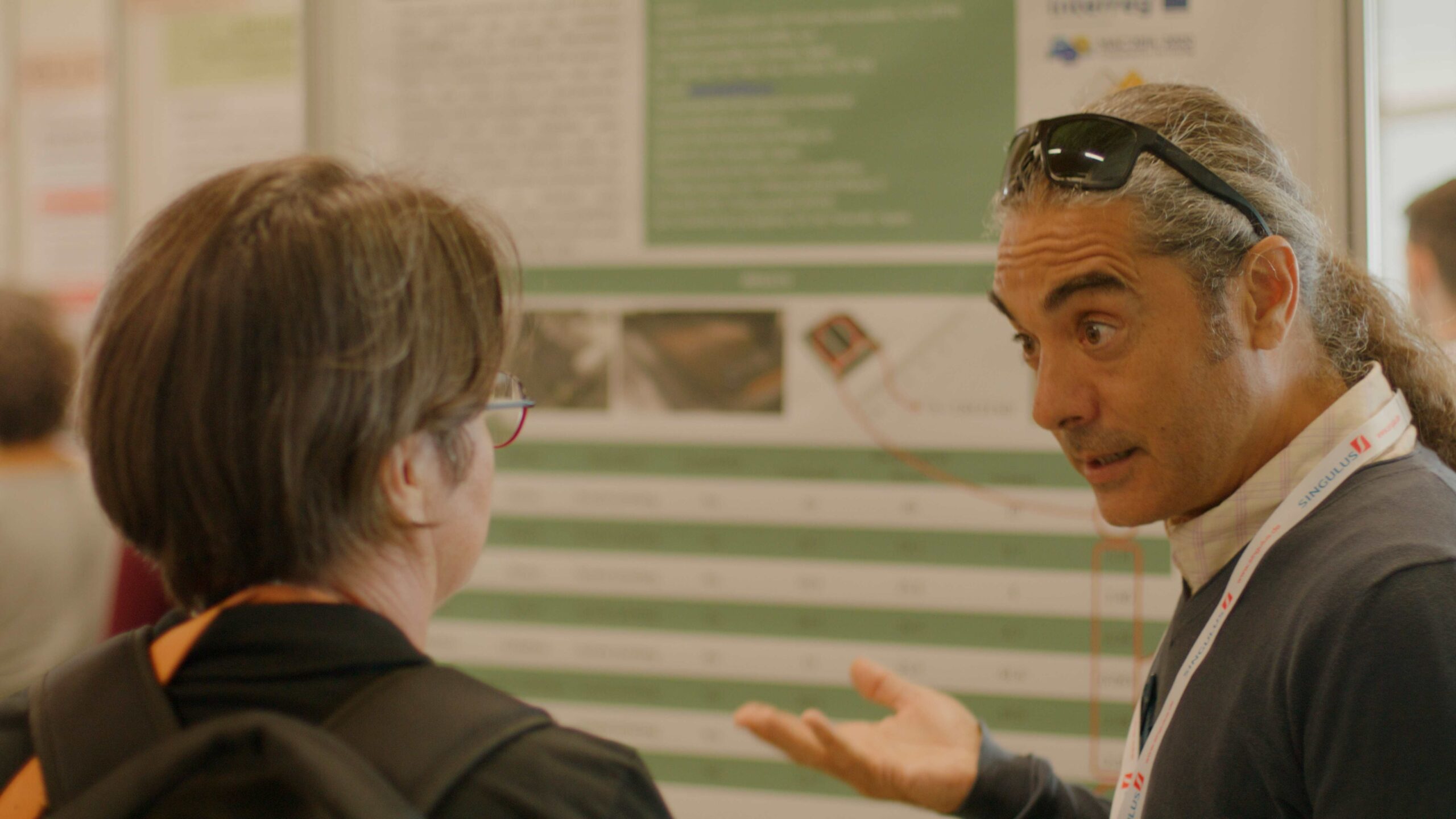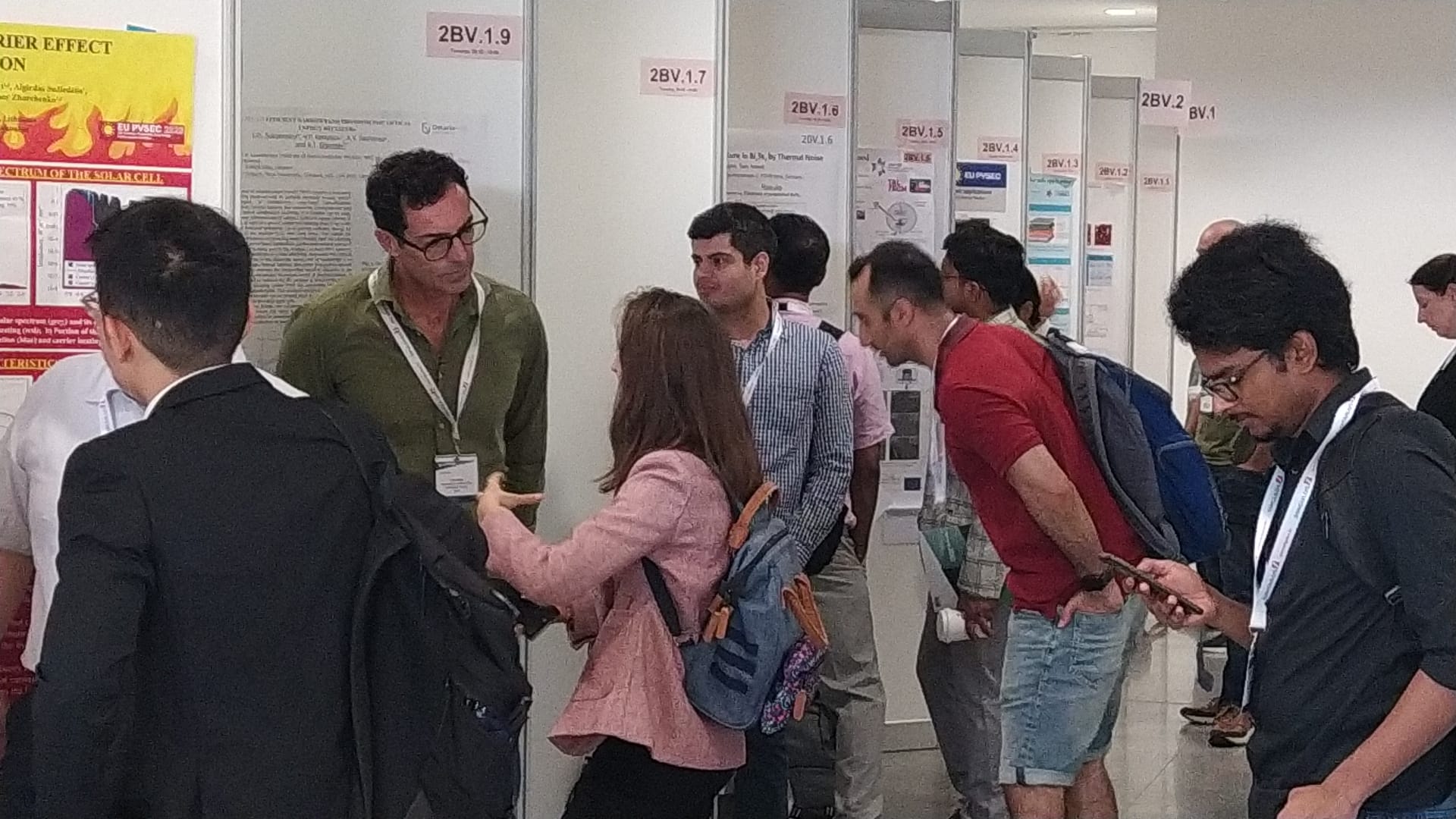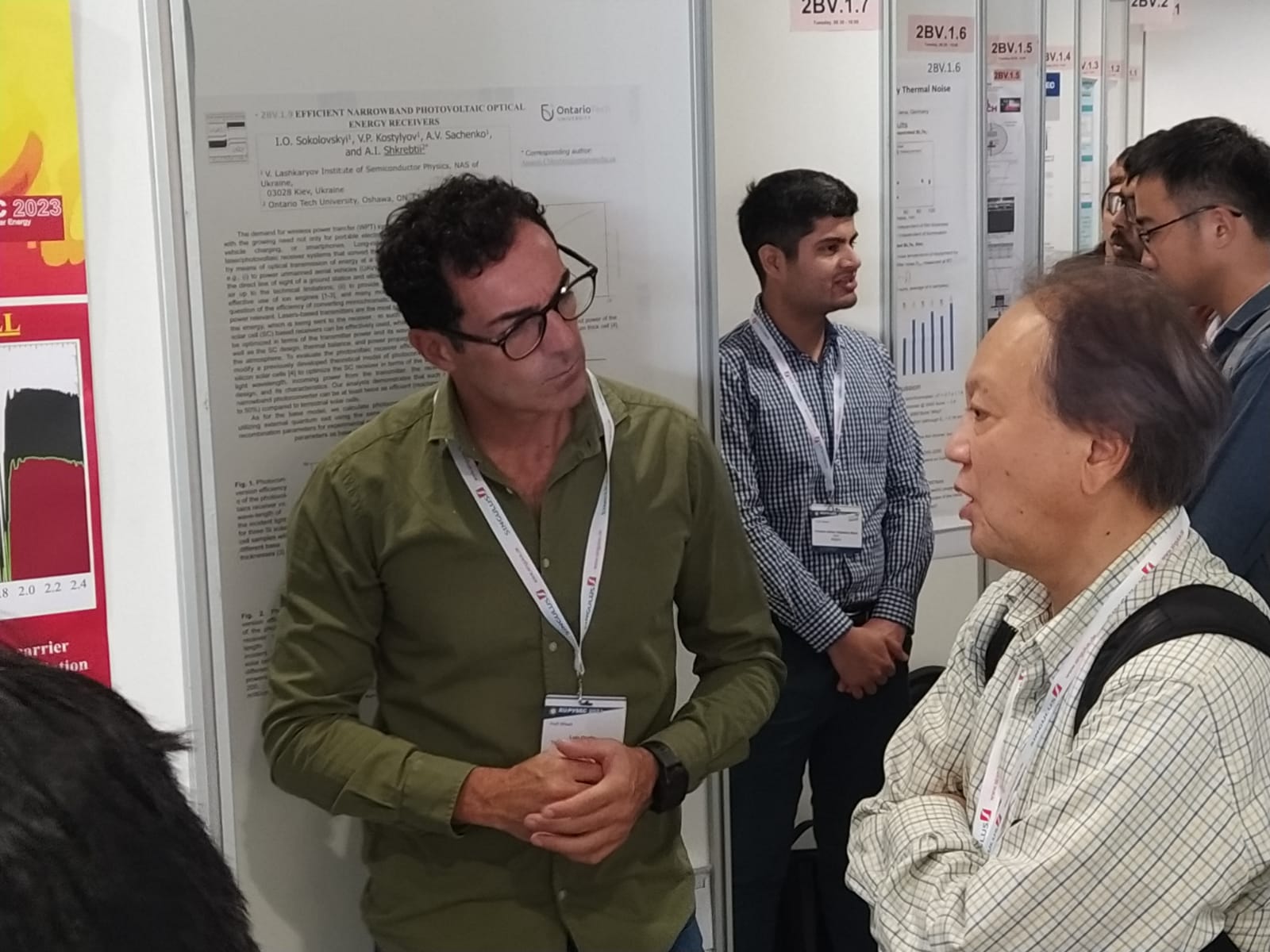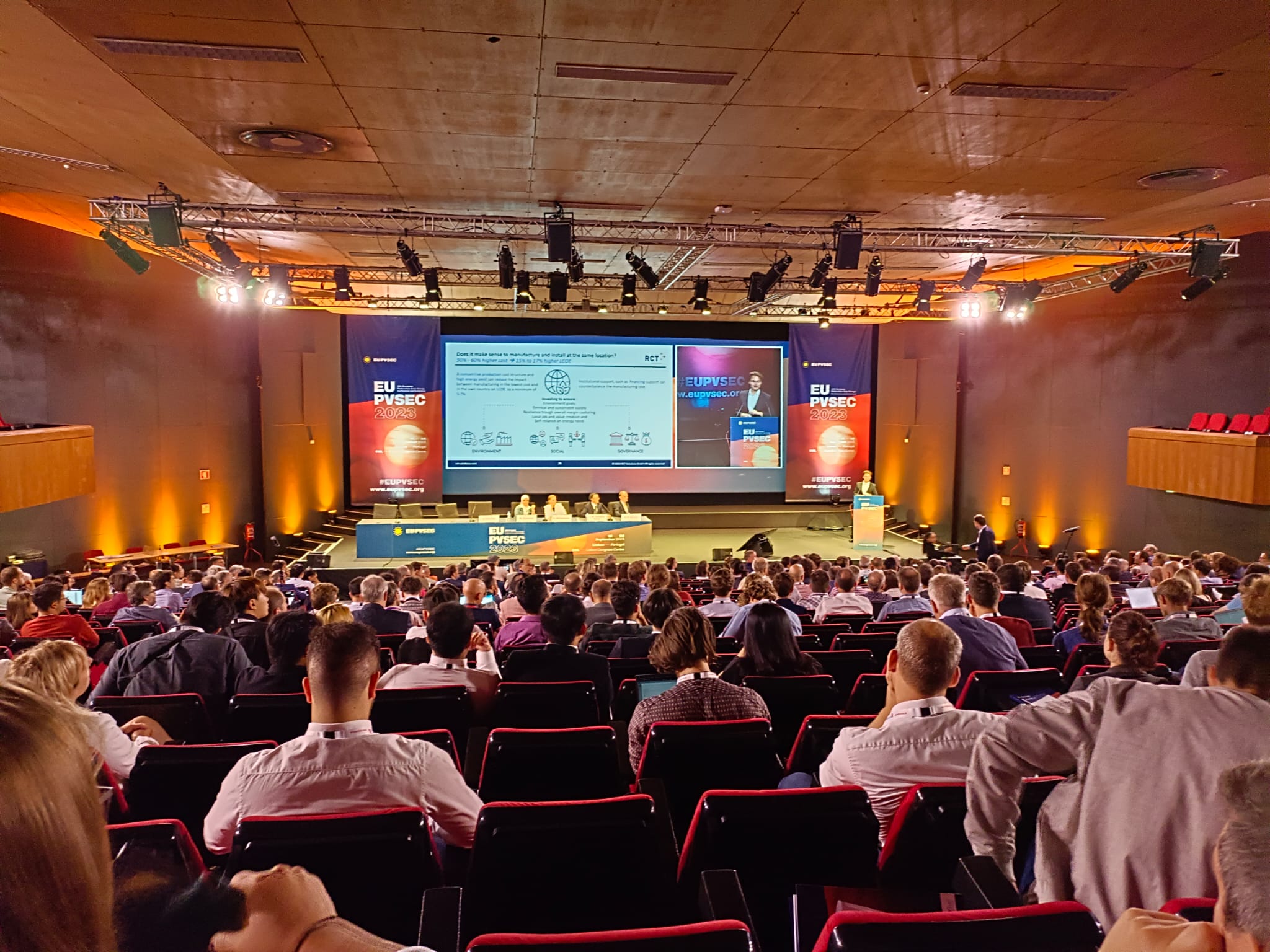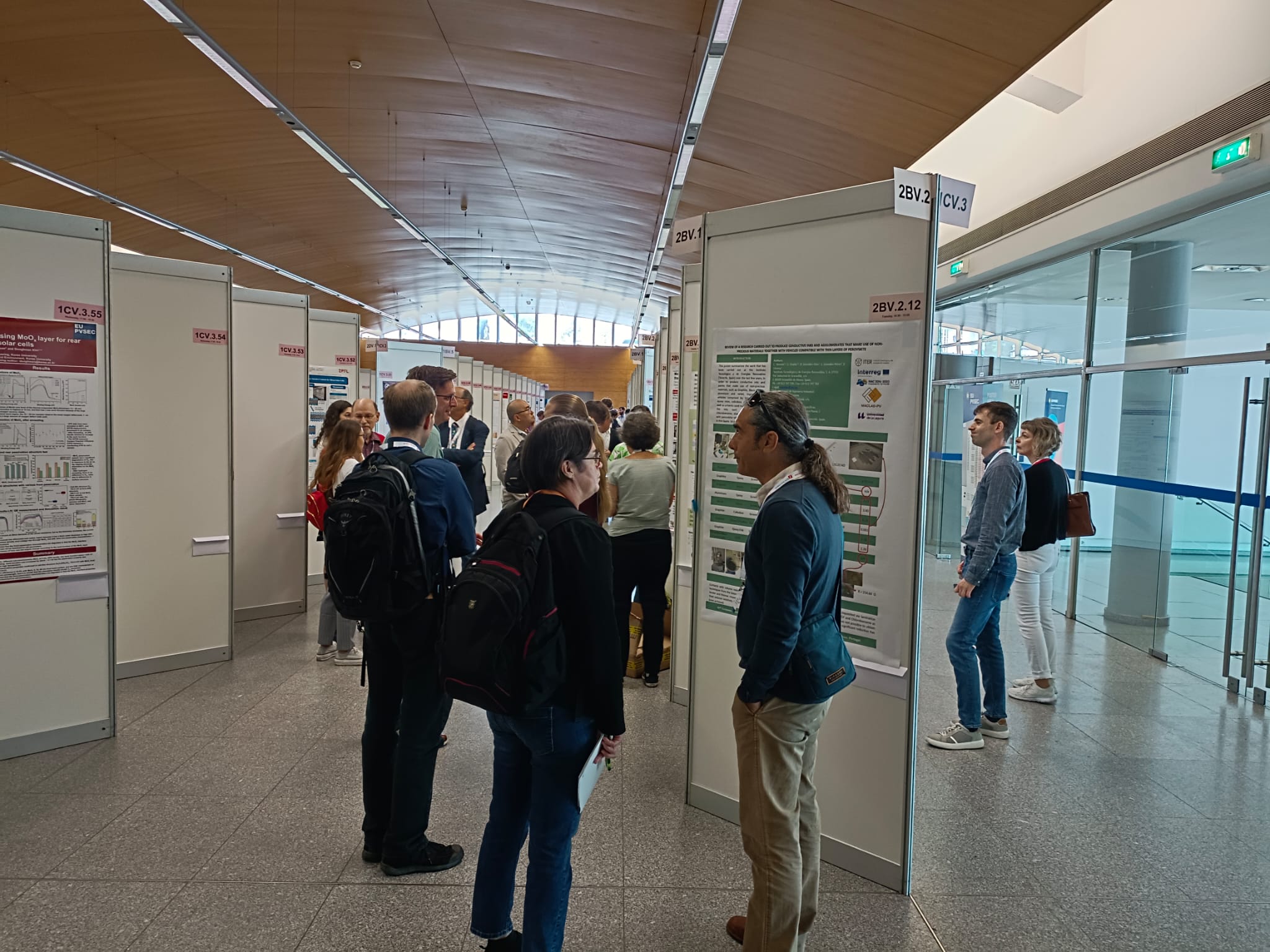Researchers from the Photovoltaic Energy Department at ITER presented the results of their investigations at the Photovoltaic Solar Energy Conference held in Lisbon. This prestigious international scientific event showcased the advances made in the Photovoltaic Cells Laboratory as part of the MACLAB-PV Project.
The Institute of Technology and Renewable Energies (ITER), under the authority of the Cabildo de Tenerife, participated with two scientific communications linked to the MACLAB-PV project at the 40th European Photovoltaic Solar Energy Conference and Exhibition, the foremost European conference on photovoltaic solar energy conversion, held in Lisbon, Portugal, from September 18 to 22
The two scientific communications presented at the conference were developed in collaboration with the University of La Laguna (ULL). In them, the research group from the Photovoltaic Cells Laboratory at ITER showcased the latest advances in their research, strengthened by the European project MACLAB-PV , co-financed by the European Program INTERREG MAC 2014-2020.
The results shared with the specialized scientific community and other representatives from the photovoltaic energy sector at EU PVSEC-2023 focus on the progress made by ITER and ULL in the development and improvement of the stability of photovoltaic cells based on Perovskite. This material, more efficient, accessible, and economical than silicon, is being studied with great interest globally to explore its extensive potential.
Specifically, a summary of the work carried out in recent years was presented to produce conductive inks and agglomerates using non-precious materials like Graphite, Carbon Black, aluminium, and nickel, along with binders like epoxy resin, collodion, EVA, and PVDF, as well as solvents primarily used as mix diluents, such as toluene and chlorobenzene, to enhance their compatibility with perovskite upon deposition.
The use of compounds such as ethyl vinyl acetate (EVA), poly(methyl methacrylate) (PMMA), and polyvinylidene fluoride (PVDF) as encapsulating materials to improve the stability of perovskite solar cells against ultraviolet radiation in humid environments, which cause various degradation processes in these devices, was also studied.
As part of the MACLAB-PV project, ITER is working on acquiring various equipment that will enable the establishment of new research lines in its Photovoltaic R&D Laboratory, a cutting-edge facility in this field in the Canary Islands. The work of this scientific-technological infrastructure in enhancing the efficiency of solar cells through new thin-film layer materials is of enormous interest for industrial-scale application, as it contributes to reducing the costs of photovoltaic systems.
The EU PVSEC is the largest European conference on photovoltaic research, technologies, and applications, and concurrently, a photovoltaic industry exhibition, where the specialized photovoltaic industry presents technologies, innovations, and new concepts for the photovoltaic sector. This event, which has been held for over 40 years, brings together the global photovoltaic industry to present and discuss the latest developments in photovoltaic energy, establish networks, and conduct business
Presented Communications:
- C. Montes, L. Ocaña, B. González-Díaz, S. González-Pérez, E. Llarena REVIEW OF A RESEARCH CARRIED OUT TO PRODUCE CONDUCTIVE INKS AND AGGLOMERATES THAT MAKE USE OF NON-PRECIOUS MATERIALS TOGETHER WITH VEHICLES COMPATIBLE WITH THIN LAYERS OF PEROVSKITE (2BV.2.9).
- L. Ocaña, C. Montes, B. González-Díaz, S. González-Pérez, E. Llarena. TESTING EVA, PMMA AND PVDF UNDER UV IRRADIATION FOR A NEW LOW TEMPERATURE ENCAPSULATION METHOD FOR PEROVSKITE SOLAR CELLS (2BV.2.12).

